An increasing number of British people don't pronounce the word 'three' properly - these maps explain why
How do you say "THREE"? If you drop the "th" and say something like "FREE," you're probably from London or the South East. Scotland and Ireland have a strong preference for "th" version of "THREE."

The result is surprising because data from 60 years ago shows there was broad agreement in England in favour of "THREE." Only North Londoners said "FREE." (The historic data was collected only from England.)
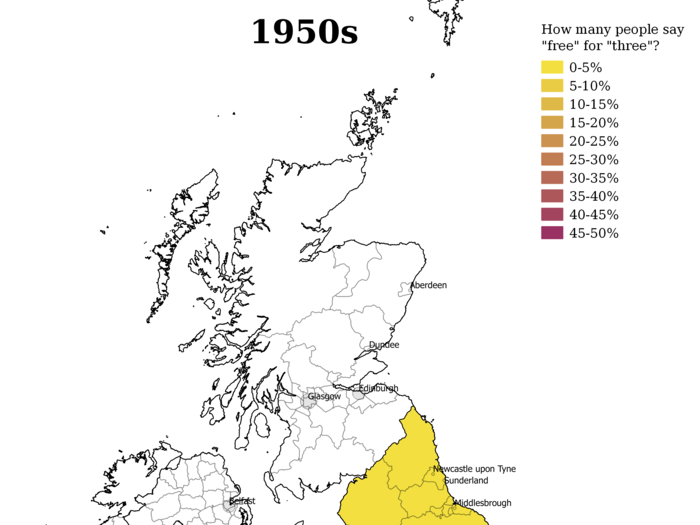
Blaxter says that the influence of London and the South East has spread southern pronunciations over the rest of the country — which is why a large minority of people in Hull and Plymouth now say "FREE" even though their parents grew up saying "THREE."
How do you say "SCONE"? This is the big one, the word that everyone gets angry about! If it rhymes with "gone" then you're from Scotland or the North. If it rhymes with "bone" then you're from the South or the Sheffield area. And look at the Ireland/Northern Ireland split. It's a country divided by Partition — and also the correct way to ask for a dough-based cake.
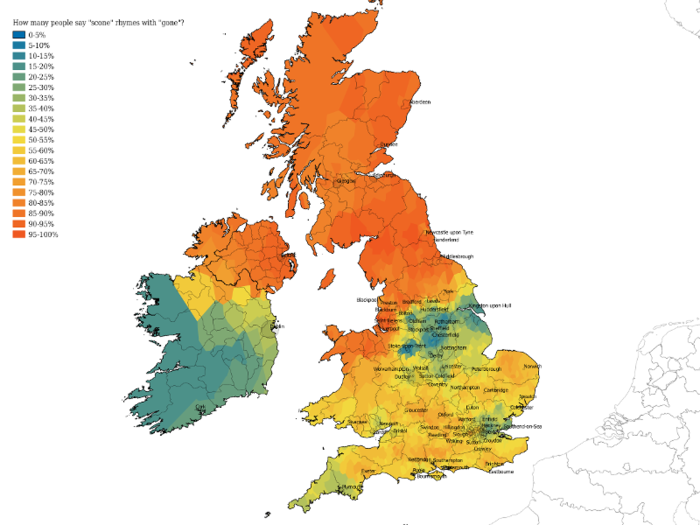
The civil war over "SCONE" is brutal: On one side of the Peak District, around Liverpool, it's solid "rhymes-with-gone" territory. But across the moors in Stoke and Chesterfield it is die-hard "rhymes-with-bone" country.
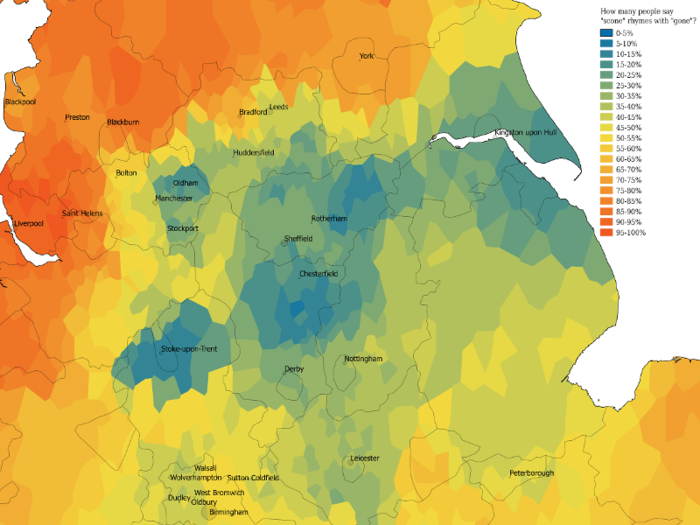
No one has ever researched the pronunciation of "SCONE" before, Blaxter says. The chaotic regional variation in its pronunciation also destroys a myth — that posh people rhyme with "bone" and everyone else rhymes with "gone." In fact, everyone simply assumes that if you pronounce it the other way, you're wrong, and it has little to do with your socio-economic status.
Here is a look at how varied our dialect was 60 years ago. This map shows all the different words our grandparents used to describe a splinter.
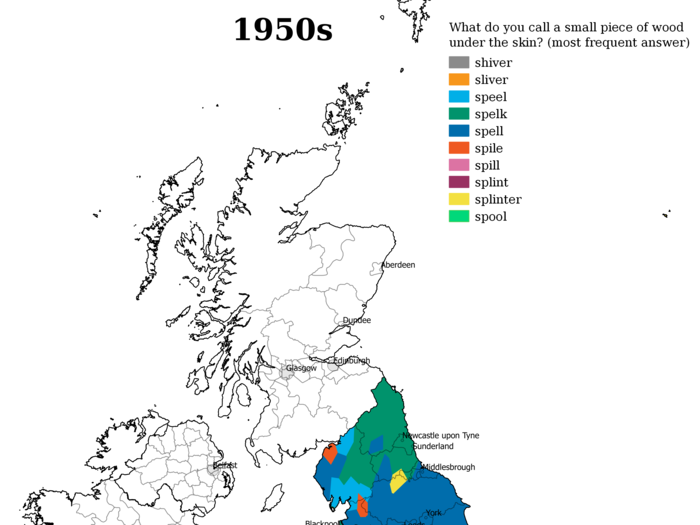
Today, if you say "SPELK" instead of "SPLINTER" then you're almost definitely from Newcastle or the North East. All the other words have died out.
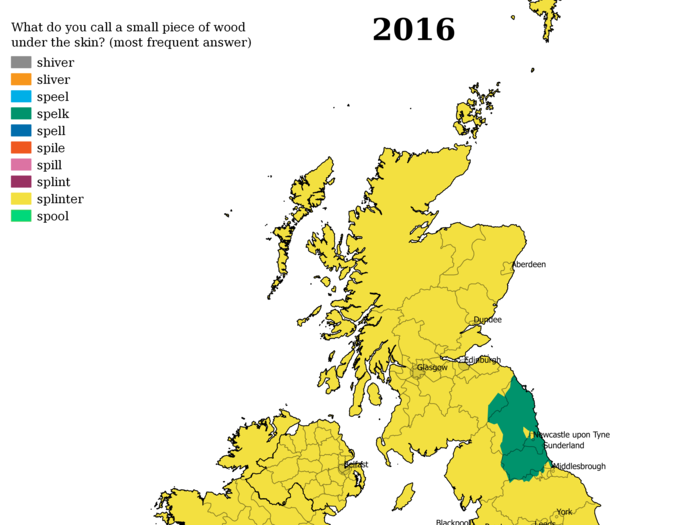
How do you say "ARM"? If you pronounce the "r" like "arrum," you're probably from Ireland or Scotland. If you say it more like "aahm," then you're from England.
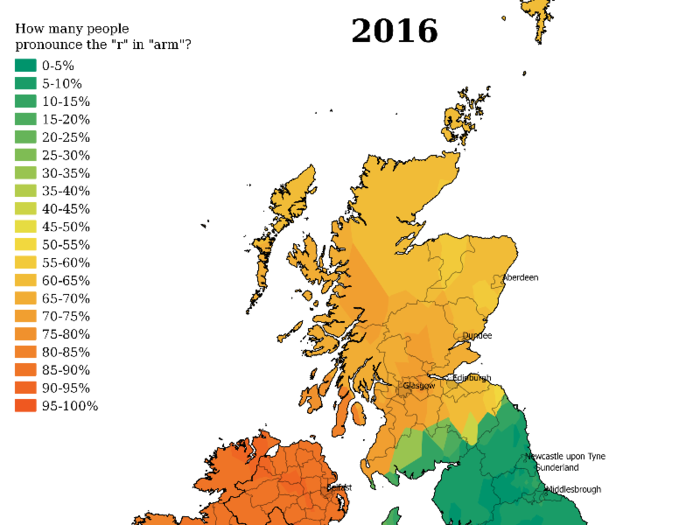
But 60 years ago, if you pronounced the "r" in "ARM" you were almost certainly from the West Country or Newcastle. (It's likely that Scotland and Ireland were big "r" pronouncers too - but we don't have the data for that.)
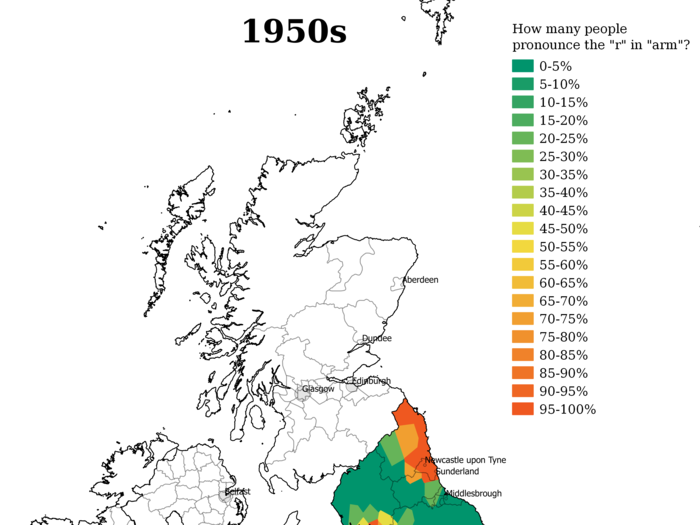
How do you say "BUTTER"? If you think the "utt" sound rhymes with "put," then you're from the North of England. But if you say it with a lighter touch, and the two words sound different, then you're definitely not a Northerner.
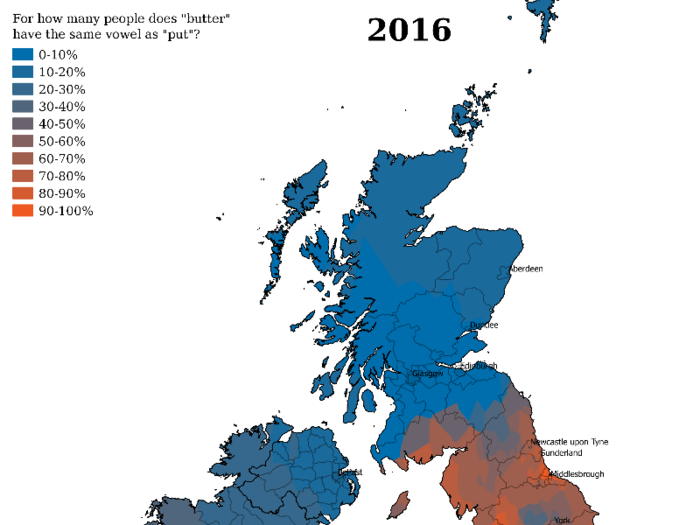
Sixty years ago there was a dramatic divide over "BUTTER," and the Northern way was more widely accepted. But the North is losing the fight as more people adopt the Southern way.
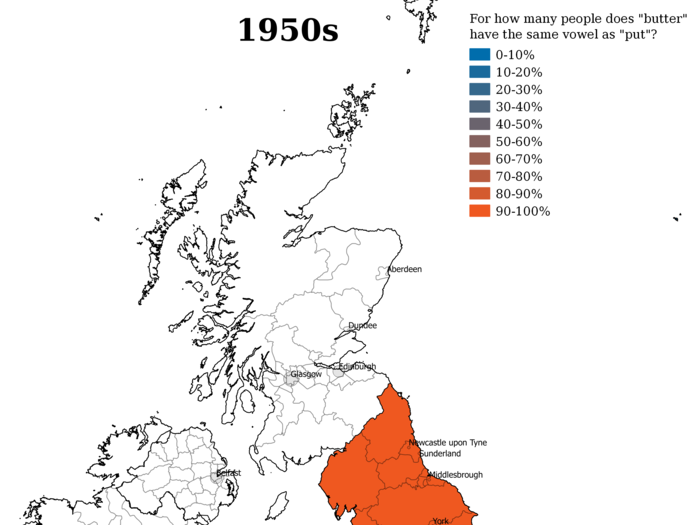
How do you say "LAST"? If you say it with a short vowel, to rhyme with "asp," then you're from the North West or the North East. But if you say it the posh way, like "larrst," then you're from the Home Counties (or possibly Scotland).
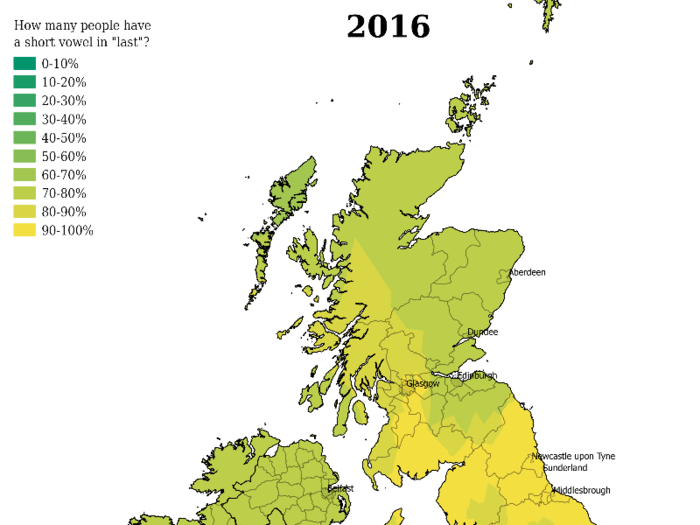
The "last/larrst" divide is one of the few resilient splits over time. The nation was divided against itself on this one in much the same way in the 1950s.
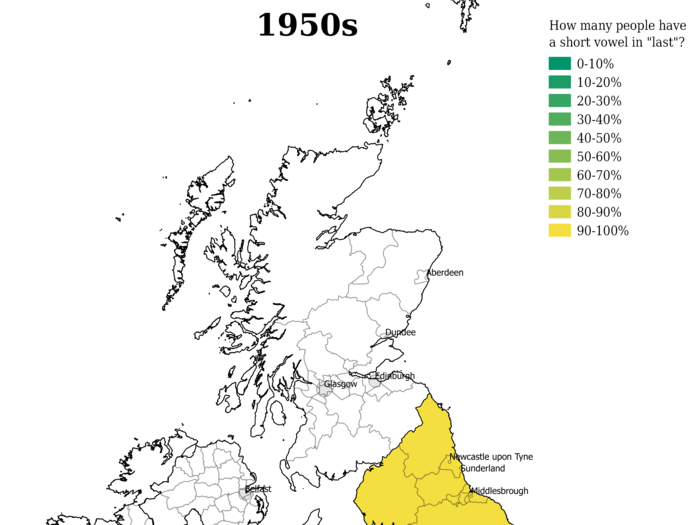
How do you say "NEW"? If you say "noo" rather than "nyoo" then you're probably from Nottingham.
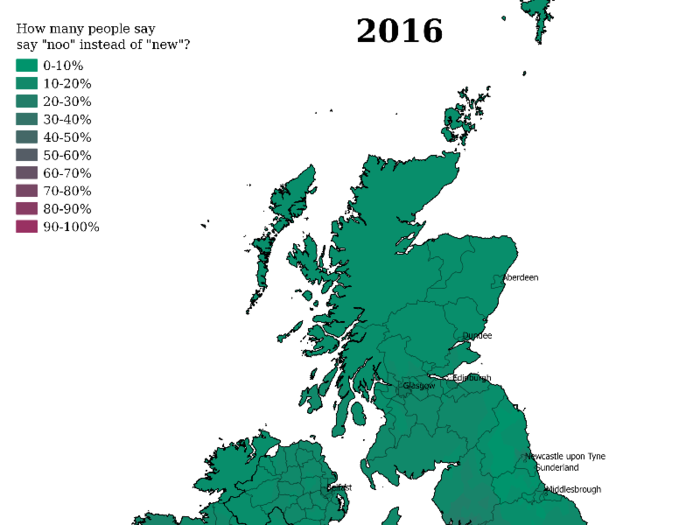
But if your parents and grandparents are from East Anglia or Devon, this explains why they keep saying "noo."
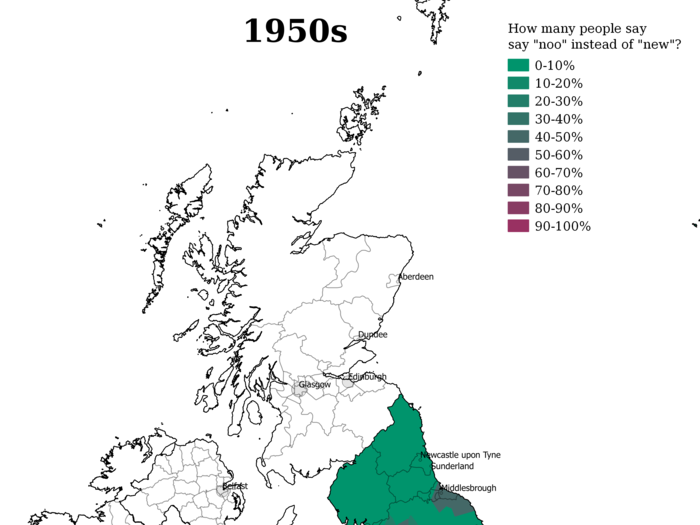
How do you say "TONGUE"? If you pronounce the "g" then you're from Bolton or Preston. Everyone else gives it a soft "ng" sound.
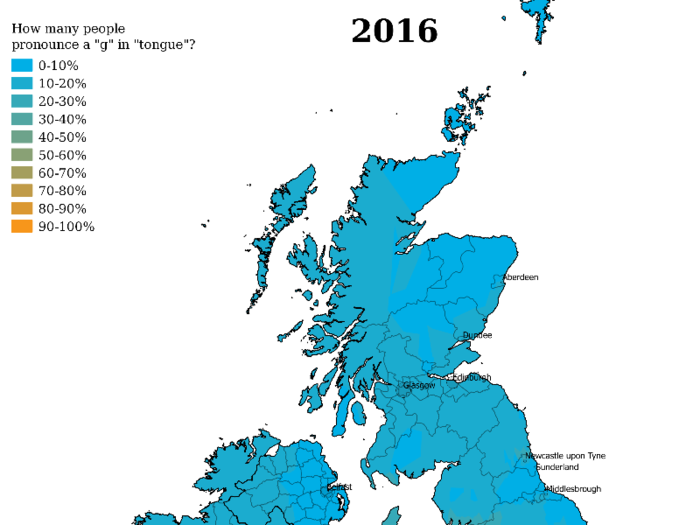
Back in the day, the hard "g" in "TONGUE" was much more common in Stoke and Merseyside.
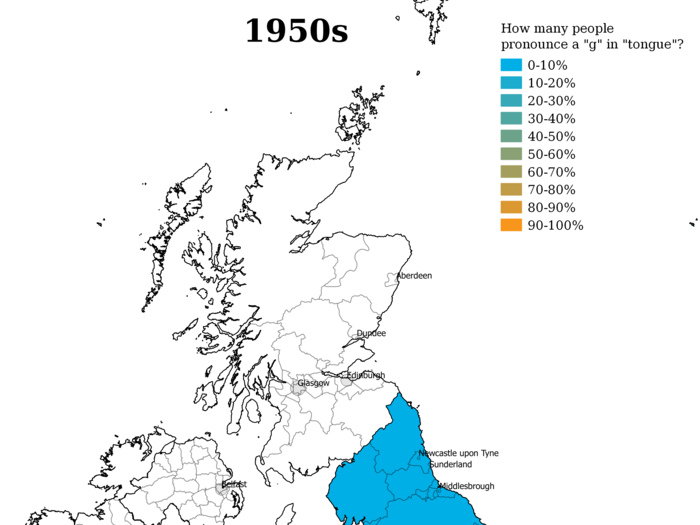
We are also losing some words that used to be common. In the 1950s, "HISSELF" was the dominant term for "himself," except in London.
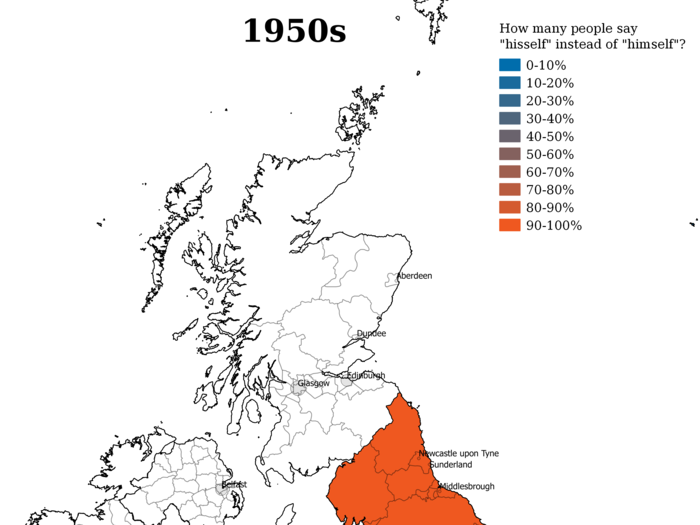
But over time the London preference for "himself" won out — almost no one says "HISSELF" anymore.
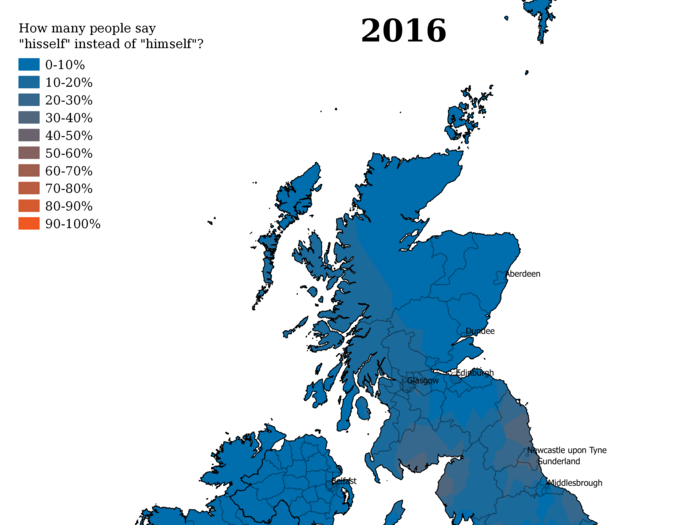
Likewise no one says "HERN" instead of "hers" anymore. But it was the dominant word in the Midlands and the Cotswolds sixty years ago.
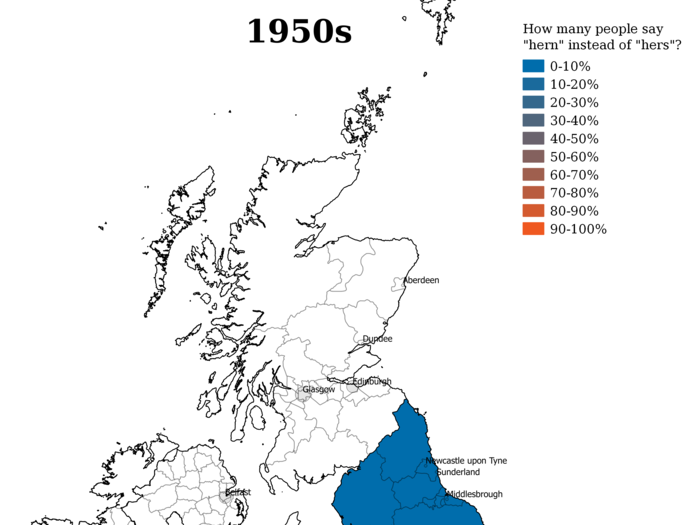
Today, "HERN" is extinct.
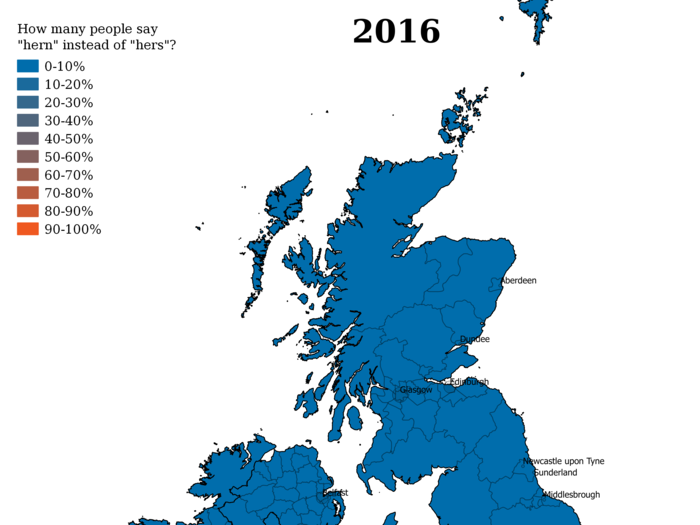
Americans call the October season "FALL." But no one in Britain says that today. We call it "AUTUMN," as this map shows. But there is a plot twist coming up ...
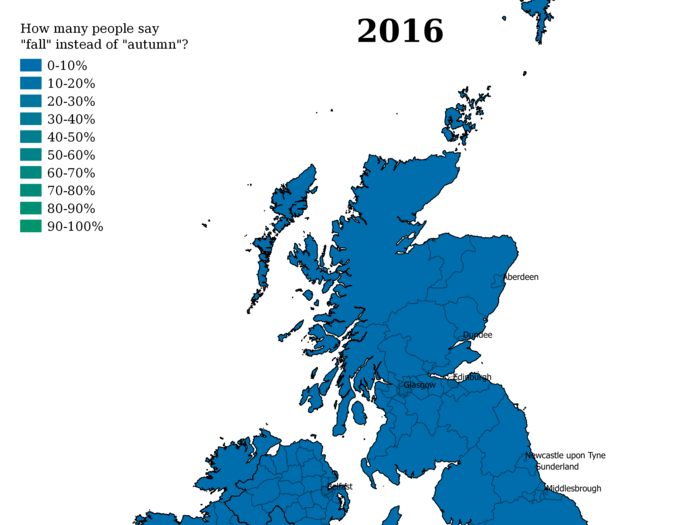
Back in the 1950s, people in the West Country and Hull said "FALL" rather than "AUTUMN."
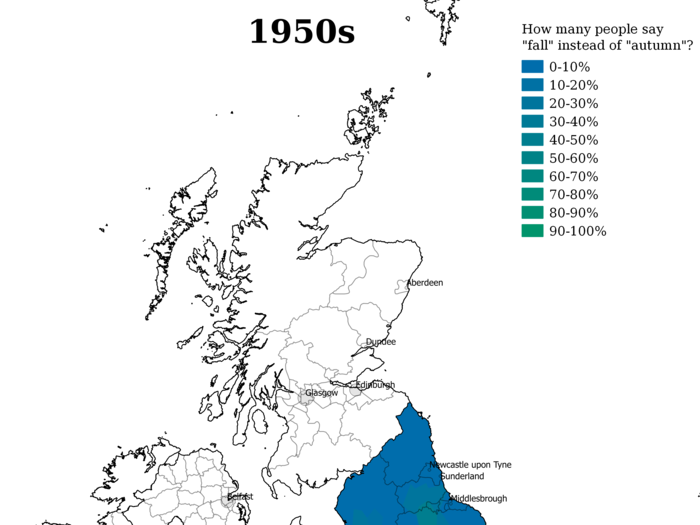
While "FALL" lost the war in England it succeeded in America. "Probably 'fall' was a way of describing 'autumn' that was brought to America and, as it happens, that was the dialect variation that won in America. Whereas over here it was 'autumn,'" Blaxter says.
Popular Right Now
Advertisement